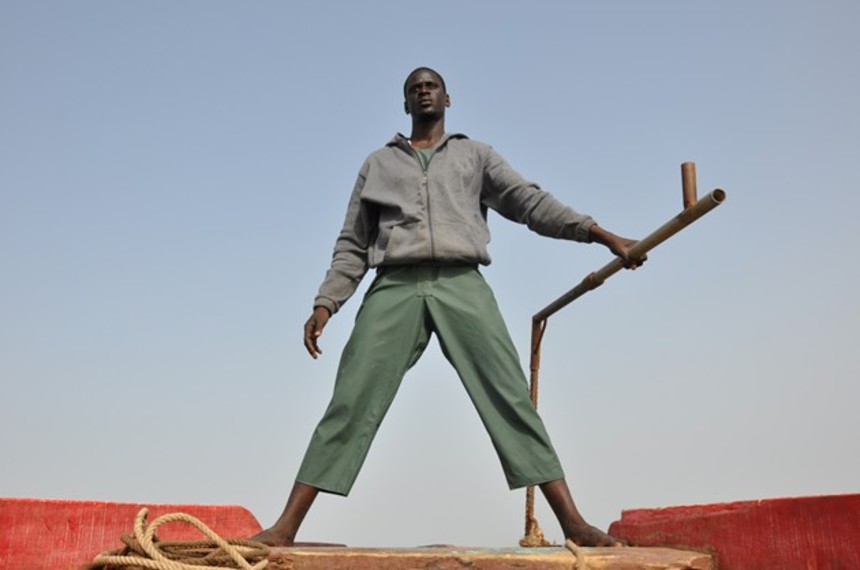Review: THE PIROGUE, A Tragically Familiar Yet Well-Told Tale of a Perilous Sea Voyage

A recurring visual motif in Moussa Touré's affecting and often harrowing sea drama The Pirogue consists of a simple yet quietly commanding camera move: the scanning of faces. These are the faces of 30 men, and one woman stowaway, who have set out on an extremely dangerous voyage from their native Senegal to look for work and better opportunities in Spain. The title of the film describes the vessel in which they are traveling, a brightly colored boat that resembles an oversized canoe, one that is definitely not intended for traveling such a vast distance with so many people on board. The story Touré tells here is undeniably a very familiar one, and one that certainly is not peculiar to Africa. But the power of The Pirogue lies not in the novelty of its narrative, but in the cultural specificity and the vividly rendered details of the circumstances which lead people to risk their lives for the possibility of a better existence that may well prove illusory.
The Pirogue begins not with the man vs. nature battle which makes up most of the film, but with the man vs. man battle of a wrestling match, during which we are introduced to most of the main characters. This is quite a colorful and striking opening sequence, a sports match crossed with a trance ritual which establishes the environment that so many people wish to leave. As culturally rich and interesting this may seem to us outsiders, it is a hard life of struggle, unemployment, and dying industries, from which the young especially wish to escape. Emerging from this mass is Baye Laye (Souleymane Seye Ndiaye), who unlike most of his compatriots would rather remain at home with his wife and son. However, the incessant insistence of his brother and a close friend on making the perilous trek to Europe, as well as the opportunity to earn some needed money for his family, force Baye Laye to act as captain of a pirogue. As an experienced seaman who earned his living from fishing before that dried up as a lucrative income source, he believes that the human cargo has the best chance of survival in his hands. He then negotiates with Lansana (Laïty Fall), an unscrupulous smuggler, to command the voyage.
However, we all know what happens to the best laid plans of mice and men, and after the boat hits the ocean, it isn't long before the worst that can happen does happen. Vicious storms, hunger, thirst, and eventually death befall the passengers one by one. Again, the fate that befalls these travelers is one that is very predictable. But Touré's sensitive rendering of the events, aided by Éric Névé and David Bouchet's authentic-feeling screenplay, Thomas Letellier's handsome cinematography and Prince Ibrahima Ndour's rousing score, prevents this from feeling entirely like something we've seen before.
As director Moussa Touré hails from Senegal, having made a number of other features and documentaries about his country, the looming influential shadow of a fellow Senegalese master filmmaker, the late Ousmane Sembene, is undeniable. There is even a character named Ousmane, which can't be anything other than an acknowledgement of this cultural debt. And though The Pirogue doesn't possess the power of Sembene's best works, Touré nevertheless is a remarkable talent in his own right.
The Pirogue opens in New York at Film Forum on January 23 for a two-week run through February 5. Visit Film Forum's website for showtimes and tickets.

Do you feel this content is inappropriate or infringes upon your rights? Click here to report it, or see our DMCA policy.






